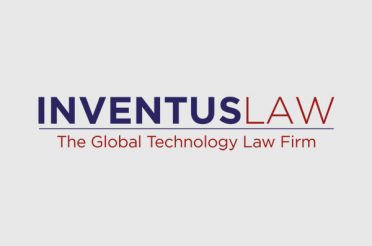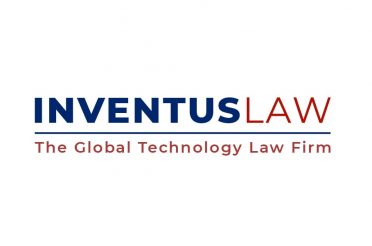Bankruptcy In The Crypto-Space And Ownership of Crypto-Assets
By Shantanu Surpure
In 2022, crypto lender Celsius Network, cryptocurrency brokerage firm Voyager Digital Ltd., and the infamous Sam Bankman-Fried company FTX, all filed for US bankruptcy protection. Unlike Celsius and Voyager, FTX’s collapse has had a much larger impact on the market. This is in large part because it is a fundamentally different type of business than a crypto lender like Celsius, or a broker like Voyager. FTX is a cryptocurrency exchange and acts as a facilitator of trades, requiring that it at all times have access to the equivalent of 100% of its client’s funds.
When a person or organization files for bankruptcy, a new legal entity called the “bankruptcy estate” comes into existence. The bankruptcy estate owns “all legal or equitable interests of the debtor in property as of the commencement of the case” (11 U.S.C. § 541(a). 51 11 U.S.C. § 541(a)(1)). In most attempts to collect from the estate, crypto customers face the possibility of a stay order that stays in effect until the end of the bankruptcy – effectively stopping customers from recovering from the estate.
Therefore, the primary issue relating to the recoverability and the timeline of such recoverability of crypto-assets at a bankrupt crypto-exchange is whose property the crypto assets are. If the assets are not the property of the crypto-exchange (the bankruptcy estate), then the customers may be able to gain access to their assets (https://papers.ssrn.com/sol3/papers.cfm?abstract_id=4107019). The section below analyzes methods for determining ownership of crypto-assets.
Not your Keys, Not your Coins
A self-custody wallet is when the user has the private “keys” needed to access and transact with the funds stored in a crypto wallet. “Keys” mean private keys which are long strings of letters and numbers that play a role like passwords by proving ownership of an address on a blockchain. Users often utilize third parties such as crypto exchanges (like FTX) which allow them to invest in crypto without needing a self-custody wallet. Crypto exchanges such as FTX hold onto users’ wallets and keys for them, meaning access to funds depends on FTX’s ability to send fund, meaning FTX is in control of the keys to the users’ holdings.
“Not your keys, not your coins” means that users cannot claim ownership over their crypto holdings unless they are stored in a wallet for which they personally have the keys. Under the “not your keys” philosophy, a wallet and accordingly the holdings in the wallet on a centralized exchange does not truly belong to the accountholder (https://decrypt.co/resources/coins-keys-wallet).
Therefore, when withdrawals are paused, users lose access to their crypto, and when there is a bankruptcy, the users’ holdings may be lost altogether. Various crypto industry leaders such as Binance’s Chanpeng Zhao, MicroStrategy’s Michael Saylor, Bitcoin author Andreas Antonopoulos, Tesla CEO Elon Musk, and Coinbase CEO Brian Armstrong have been propagating for self-custody wallets and pointing to the risks of keeping assets in exchanges like FTX that do not give users access to their private keys.
There is also legal precedent for this philosophy. In BDI Capital, LLC v. Bulbul Invs. LLC, the court held that “In order for a bitcoin owner who holds her virtual currency in an exchange (or other type of shared wallet) to access the forked currency, the exchange must take some affirmative action…There is no requirement that investors keep their coins in exchanges; they can always withdraw the coins to their own private wallets. In the unregulated cryptocurrency market, potential investors are well advised to ensure that the terms of service of the exchange they are using clearly spell out what the exchange’s obligations are…”
Similarly, in Archer v. Coinbase, Archer filed a lawsuit against Coinbase alleging, among other things, breach of contract based on Coinbase’s failure to allow him to receive his coins and Coinbase’s retention of control over his coins for its own benefit. The Court stated, “the pertinent question is whether Coinbase had a contractual obligation…, and the undisputed evidence submitted by Coinbase shows it did not.” The Court adopted the BDI ruling and further held that Mr. Archer provided no evidence that Coinbase had a duty to give Mr. Archer access to the coins.
If we follow “not your keys, not your coins,” customers/users of FTX will be unable to claim ownership over their crypto-assets and will be classified as unsecured creditors in the bankruptcy proceedings and unable to access their assets.
US Bankruptcy Code Exceptions
Section 541(b) of the US Bankruptcy Code contains numerous exceptions to the presumption of ownership established in Section 541(a). One of the exceptions excludes from property of the estate any power that the debtor may exercise solely for the benefit of another. Section 541(d) provides that the estate does not include “any power that the debtor may exercise solely for the benefit of an entity other than the debtor,” including the power to distribute assets of a trust.
The US Supreme Court in United States v. Whiting Pools, Inc. stated “Congress plainly excluded from Section 541(a) property of others held by the debtor in trust at the time of the filing of the petition.” The Seventh Circuit Court of Appeals in In re Joliet-Will County Community Action Agency, held that property held by the debtor as a custodian (or other intermediary) who lacks beneficial ownership rights is not an asset of the bankruptcy estate. The court then looked to see if the relationship between the debtor and those who transferred funds to the debtor was in fact “custodial.” The court concluded the answer depends on “the terms under which the grants were made” and the relationship between the holder of the funds and its customer.
In Joliet-Will, the agreement provided for controls on the holder’s use of the funds and the holder was “in effect an agent to carry out specified tasks rather than a borrower, or an entrepreneur using invested funds.” Critically, the court concluded the relationship was “custodial” and, thus, the funds were not property of the bankruptcy estate.
In the context of a cryptocurrency exchange bankruptcy, the same analysis could apply where the terms of the relationship between an exchange and its customer are comparable and, thus, “custodial”. In such a situation, the customer would have a basis to assert that it should remain the beneficial owner of the assets, rather than become a general unsecured creditor of the exchange.
US Uniform Commercial Code
Section 8-503(a) of the US Uniform Commercial Code (“UCC”) provides that a customer with a financial asset on an exchange retains ownership of that asset (not the exchange) if (1) the exchange is a securities intermediary; (2) the securities intermediary has agreed with the customer to treat the asset as a financial asset; and (3) the securities intermediary has credited the financial asset in a securities account.
Importantly, this retention of ownership prevails even if the securities intermediary holds the financial assets in fungible, or commingled, form (https://crsreports.congress.gov/product/pdf/LSB/LSB10832). Article 9 of the UCC governs security interests in both tangible and intangible assets and provides a framework for perfecting a security interest. Cryptocurrency, however, does not readily fit into the safeguards of Article 8 and 9 (https://scholarworks.uark.edu/cgi/viewcontent.cgi?article=1092&context=alr).
Crypto assets differ from traditional bank accounts or securities in that they are not backed or guaranteed by any governmental entities such as the FDIC or the SIPC. For instance, the FTX Terms of Service in Section 2.10 stated: “No deposit protection. Neither Digital Assets nor any fiat currency or E-Money held in your Account is eligible for any public or private deposit insurance protection.” The UCC does not currently deem digital exchanges as falling under the definition of a “securities intermediary” (https://www.blankrome.com/sites/default/files/2020-06/security_interests_and_liens_priorities.pdf).
In July 2021, however, certain sponsors of the UCC approved amendments geared toward cryptocurrencies. A proposed Article 12 addresses “controllable electronic records,” which includes digital assets. Under this article, a party may perfect a security interest in controllable electronic records – that is, ensure that no other party has rights to an asset – by obtaining “control” of such records.
Control under Article 12 generally encompasses circumstances when a party has the “private key” or other mechanism to avail itself of substantially all the benefits of the record, prevent others from availing themselves of such benefits, and transfer the record and associated benefits.
A revised Article 9 would allow a party to perfect a security interest in certain controllable electronic records. In perfecting a security interest in crypto assets, creditors would find themselves at the front of the line of priority in a Chapter 11 bankruptcy.
Fraudulent Conveyance and FTX’s Terms of Service
The Terms of Service for Celsius stated to users that if it went bankrupt, crypto deposited into its flagship yield-earning program “may not be recoverable, and you may not have any legal remedies or rights in connection with Celsius’ obligations to you” other than as an unsecured creditor. Similarly, during Voyager’s bankruptcy hearings, Voyager asserted the crypto assets were assets of the estate pursuant to the terms of its customer agreements.
FTX’s Terms of Service on the other hand state most of the assets it held remained the property of its customers, except for those assets which were staked. Specifically, Section 8.2.6 of FTX’s Terms of Service reads:
“All Digital Assets are held in your Account on the following basis: (A) Title to your Digital Assets shall at all times remain with you and shall not transfer to FTX Trading. As the owner of Digital Assets in your Account, you shall bear all risk of loss of such Digital Assets. FTX Trading shall have no liability for fluctuations in the fiat currency value of Digital Assets held in your Account. (B) None of the Digital Assets in your Account are the property of, or shall or may be loaned to, FTX Trading; FTX Trading does not represent or treat Digital Assets in User’s Accounts as belonging to FTX Trading. (C) You control the Digital Assets held in your Account. At any time, subject to outages, downtime, and other applicable policies (including the Terms), you may withdraw your Digital Assets by sending them to a different blockchain address controlled by you or a third party.”
Accordingly, pursuant to its Terms of Service, FTX cannot use the funds for purposes other than just holding them on customers’ behalf. However, FTX, with the knowledge of top executives, purportedly moved customer funds from FTX to Alameda Research in the alleged transfer of $10 billion to cover losses in Alameda’s balance sheet (https://www.coindesk.com/policy/2022/11/10/ftx-violated-its-own-terms-of-service-and-misused-user-funds-lawyers-say/). Much of the $10 billion sent to Alameda has since disappeared, and the estimated the gap is in the range of $1 billion to $2 billion ( https://www.cnbc.com/2022/11/12/1-billion-to-2-billion-of-ftx-customer-funds-missing-report.html; https://www.wsj.com/articles/ftx-tapped-into-customer-accounts-to-fund-risky-bets-setting-up-its-downfall-11668093732?mod=e2tw).
Fraudulent conveyance is a civil action whereby a creditor moves a debtor’s assets in a harmful way. Using customers’ investments to support Alameda Research or in any other way not contemplated by the Terms of Services could result in claims for fraudulent breach of trust, fraudulent conveyance and misappropriation of customer investments (https://news.fintechnexus.com/will-the-ftx-crash-hurt-fintech/).
If it can be proven that FTX utilized users’ funds for their own purpose, including possibly lending them to Alameda, that would improve the clients position in the creditor hierarchy in bankruptcy. Customers could assert that the assets FTX is holding are not the company’s assets. This could potentially permit customers to get their money back sooner.
Lummis-Gillibrand Bill
On June 5, 2022, A bipartisan crypto bill titled ‘Responsible Financial Innovation’ Act was introduced by U.S. Sens. Cynthia Lummis and Kirsten Gillibrand (“Bill”). The Bill aims to protect investors if a cryptocurrency exchange files for bankruptcy by ensuring that their digital assets are held separately from the firm’s own assets (https://www.jdsupra.com/legalnews/10-key-points-of-the-lummis-gillibrand-8522356/).
Conclusion
FTX contagion continues to spread. The crypto lender BlockFi is preparing to file for bankruptcy protection. BlockFi halted customer withdrawals and stated that it had “significant exposure” to FTX (https://www.barrons.com/articles/blockfi-may-file-bankruptcy-51668539577?st=t2hbvyjjrfpzka7) .
This chaotic situation requires clarity on the post-bankruptcy situation for customers of these large crypto entities. With FTX’s evolving situation, the question of who owns digital currencies – the exchanges or the customers remains unsettled.
However, US bankruptcy courts have not yet decided complex legal questions around crypto ownership when an exchange or lender goes bankrupt. The proposed changes to the UCC and the Lummis Gillibrand Bill may provide some clarity.
* The author appreciates the assistance of Manya Oberoi in writing this article.



